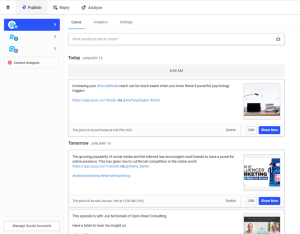As promised, here is part two of the three-part blog series, inspired by the writings of John C. Maxwell, “The 15 Invaluable Laws of Growth: Live Them and Reach Your Potential.”
I’m humbled for the appreciation and love my readers have shown for the previous blog post. In this blog, we will explore what can Scrum Masters learn from the law of intentionality, environment, and consistency.
1. The Law Of Intentionality: Growth Doesn’t Just Happen
We have to be intentional about it. And the sooner we make the transition to becoming intentional about our growth, the better it is because growth compounds and accelerates as we remain intentional about it. Here’s how to make the change:
Experiments for Cultivating Intentionality
- Ask the Big Question: Making a shift from asking “How long will this take?” to “How far can I go?” That is the question you should be asking yourself right now.
- Ask yourself this question: How far can I go to make my Scrum Team truly Self-Organizing
- Take action now: In one of my latest reads, I came across is by “Jennifer Reed” in Success magazine, she says, “Can there be a more insidious word? Later, as in ‘I’ll do it later.’” “Later” is one of those dream-killers, one of the countless obstacles we put up to derail our chances of success. Scrum Masters need to adopt a “just do it” attitude.
- Ask yourself this question: As a Scrum Master, what action can I take now? what is the simplest thing that might possibly work to ensure Scrum is enacted and understood by everyone in my Scrum Team and the Organization?
- Feed your faith and starve your fear(s): For the average Scrum Masters, there is always an excuse (My Organization doesn’t empower me, Nothing happens here nine to five, this is how things happen here and so on…), and most times it’s never them, It’s always something or someone else but them. Dare to be unpopular, urges motivational speaker Les Brown in his book Live Your Dreams.
“This fear of unpopularity causes some to live in the shadows rather than step into the sunlight.” Face your fear. Writer, author, and speaker Brian Tracy says, “The only good thing about fear if there is anything good, is that it is learned, and because of this, it can be unlearned.”- Ask yourself this question: As a Scrum Master, How can I show low tolerance to organizational impediments?
PRO TIP
- Adopt a Beginner’s Mindset: This means living with Scrum Values “openness” and “Courage”. No matter how much you think you know, you can always learn something new.
Your journey as a Scrum Master is to grow from being a “LAN cable-Physically Connected” to being a “WIFI -Invisibly Present”
2. The Law Of The Environment: Growth Thrives In Conducive Surroundings
The people with whom we habitually associate with are called our “reference group,” and these people determine as much as 95% of our success or failure. We are the same today that we are going to be in five years from now except for two things: the people with whom we associate and the books we read.
One of the ways a Scrum Master can leverage the environment is by associating with other Scrum Masters via some means like a Community of Practice or a guild. Such associations could be quite informal like lunch and learn sessions, TED talks, Lean Coffee chats, etc.
PRO TIP
- Find an accountability partner to take the journey with you. You cannot take the growth journey alone, not if you want to reach your potential.
- Develop a reading habit; Start a Book Club:- Some quick book inspirations that I’ve found extremely interesting for starting book clubs are Scrum Guide, Start With Why, Our Iceberg Is Melting, Switch, Coaching Agile Teams, Five Dysfunctions of a Team, The Fifth Discipline, and The Greater Goal.
It’s possible to change without growing, but it’s impossible to grow without changing.
3. The Law of Consistency: Motivation Gets You Going — Discipline Keeps You Growing
It doesn’t matter how talented you are. It doesn’t matter how many opportunities you receive. If you want to grow, consistency is the key. Everyone reading this blog is already a master at consistency and that is the good news! You either have developed some good or bad habits through some sort of consistent pattern. What is required is some inspection and adaptation.
Small disciplines repeated with consistency every day lead to great achievements gained slowly over time. This is an especially good idea to implement when reading a book. All the readers may not be leaders but all the leaders are readers.
PRO TIP
- Inspect and Adapt your daily ritual: Pay attention to your daily rituals and bring some discipline. Our Daily rituals define who we are, and like gravitation force, pull our behavior in a certain direction.
Discipline is the bridge between goals and accomplishments, and that bridge must be crossed every day.
I hope you’ve enjoyed reading this article, I’d like to hear from you in the comments section.
Business & Finance Articles on Business 2 Community
(57)
Report Post





